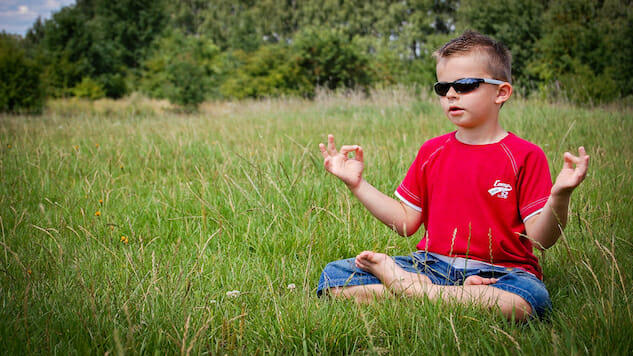How Stay at Home Moms Can Benefit From Mindfulness and Meditation
Photo by Michal Jarmoluk/Pixabay
Life is hard. Full stop. Some lives are harder than others, yes, undoubtedly, but it’s subjective. The life of Syrian refugee is decidedly more difficult than that of a suburban stay at home mom, but every life has suffering and all suffering, to the person experiencing it, is real and valid and true.
Stay at home moms (SAHM) are frequently at the crux of the argument of who’s suffering is worse. People assume it’s an easy life, full of leisure and play and Pinterest crafts. But regardless of what you see on your SAHM friends’ Instagram feed, it’s far from perfect.
Studies show that SAHMs are more likely to experience mental illnesses such as depression and anxiety, than women who work outside the home. And rates of addiction in SAHMs are increasing every year. Clearly, the isolation can be crushing, and the day-to-day routines, while not particularly challenging, can be both physically and emotionally exhausting.
So, what’s a mother to do when most days it’s a struggle to even leave the house? When you don’t see another adult person besides your partner for days at a time? When you spend more time caring for others than yourself? When you can’t afford those yoga classes or a gym membership or even a mom’s night out because you are a single-income family? When you are never, ever alone? What if the only stress relief you get are stolen moments, minutes at a time, when you aren’t caring for other people?
It might be as simple as just noticing, paying attention, being aware.
It’s called mindfulness.
Sounds super easy, right? And it is. But it also isn’t. Mindfulness is defined as “maintaining a moment-by-moment awareness of our thoughts, feelings, bodily sensations and surrounding environment.” Noticing, but not judging. Acknowledging. Accepting. And moving on to the next moment.
To be fully aware and accepting of a moment—the physical, mental and emotional—is to be mindful. To understand that yes, your toddler is having a meltdown on the floor and yes it’s hard but the meltdown will pass; to know that you are angry because your toddler is having a meltdown on the floor and it is out of your control, but your anger will pass. Accept the meltdown. Accept your anger. But don’t hold on to it. Acknowledge it, accept it for what it is and move on to the next moment. It all sounds very woo-woo. Very new age. However, it’s anything but.
Mindfulness has roots in Buddhism, which incorporates spirituality and psychology to integrate mind and body. The aim is, among other things, to help the practitioner reach a place of calm acceptance and to provide the ability to process emotions without becoming overwhelmed by them. Acknowledge, accept, and move on.
Along with mindfulness, a meditation practice can be a boon to stressed out, overwrought, fatigued mothers. Everyone knows how important self-care is, especially when you spend the majority of your time caring for others, but actually doing it with intention can be tricky when you have small children. Study after study has shown the benefit, especially during the postpartum period, of sticking with a mindfulness and meditation practice, ranging from less stress and more focus to aiding with postpartum weight loss. But in Western culture, the word “meditation” has so many negative or confusing connotations, so many misconceptions that most people never give it any serious thought, despite the proven benefits.
You say “meditate” and your mind may conjure images of hippies or fringe religious sects. You may think it goes against your religion or that it’s a sin.
-

-

-

-

-

-

-

-

-

-

-

-

-

-

-

-

-

-

-

-

-

-

-

-

-

-

-

-

-

-

-

-

-

-

-

-

-

-

-

-









































